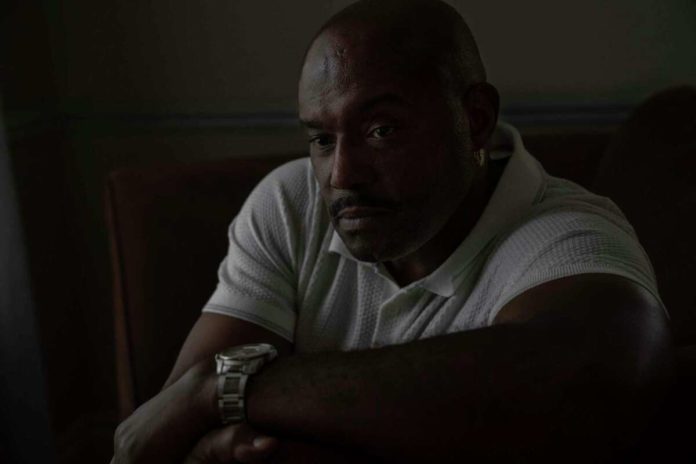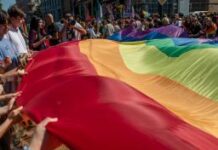Fifteen years later, Tim Hardaway’s words still reverberate in the world around him. They shadow him, torment him, stubbornly refuse to disappear.
I hate gay people … I don’t like to be around them … I am homophobic.
Hardaway, one of the most dynamic players in Golden State Warriors history, made those statements on a Miami radio show in February 2007. All these years later — after countless apologies, extensive efforts to make amends and a long Hall of Fame wait he often traces to the ‘07 interview — the words remain part of Hardaway’s complicated legacy as he awaits his Hall induction Sept. 10.
“I’ve got to deal with that every day,” he said.
As he stayed on the periphery of basketball over the years — eventually working as a Heat scout, Pistons assistant coach and now Knicks scout — Hardaway often reflected publicly on his comments. He spoke of enrolling in an educational program at the YES Institute in Miami, working with other gay-rights groups and how his attitude about the LGBTQ community had changed.
But, until now, Hardaway seldom explained why he felt that way 15 years ago and how the fallout hasn’t faded. This month, in an extended phone interview with The Chronicle, Hardaway elaborated on the roots of his previous views and how those long-ago remarks affect his life today.
“I grew up in a church, and that’s the way churches were — they instilled in you that (homosexuality) wasn’t the way you should be,” he said. “I was just taught differently. Don’t talk to them, don’t mess with them, leave them alone.
“I never tried to talk bad about them or do hateful stuff. It was just my upbringing in church. But I’ll tell you this: It was so wrong of me, and people have suffered. I had to grow up and really do some soul-searching. What I said was just hurtful.”

Former Golden State Warrior Tim Hardaway at his home in Orchard Lake, Mich. on Saturday, August 6, 2022. Hardaway is one of the Naismith Memorial Basketball Hall Of Fame Class of 2022 inductees.
Sarah Rice / Special to The Chronicle
Hardaway backtracked slightly later in the interview, saying he doesn’t blame the church and “it’s on me, too.” But he was more forceful about the impact his comments have had on his post-NBA playing career.
Hardaway, who turns 56 on Thursday, has sought jobs in television but the networks are “not letting” him work as an analyst, he said. He also believes his anti-gay statement is the reason “other business things” haven’t worked out. Hardaway wouldn’t offer specifics.
Any lingering furor hasn’t kept him out of sight or unemployed. In 2014, then-Detroit head coach Stan Van Gundy (a Miami assistant when Hardaway played there) hired him as an assistant coach; they worked together four seasons until Van Gundy was fired.
The Warriors also welcome Hardaway back to the Bay Area for occasional functions, including a January 2019 ceremony to install the first seat at Chase Center. Hardaway appeared alongside then-Warriors president Rick Welts, the first openly gay executive in a major U.S. sport. (Welts declined an interview request for this story.)
“A lot of people don’t want to deal with me because I said that, and I’m not getting a second chance,” Hardaway told The Chronicle. “I understand … but it does bother me. A lot of people are still holding it over me.
“Some organizations don’t want to talk to me. I keep moving and walk past them just like they walk past me. I’m a realist. … My parents always said turn a wrong into a right, so you do what you can to show people you’re not that type of person.”

L-R, Don Moffett, season ticket holder Tim Leahy, Warriors legend Tim Hardaway, and Warriors COO Rick Welts, pose for a photo inside the new Chase Arena where Leahy was able to help install his new seats while the arena is still under construction in San Francisco, Calif., on Friday, January 4, 2019. The Warrior will open their 2019-2020 season in the new facility.
Carlos Avila Gonzalez / The Chronicle
Beyond his interactions with potential employers, Hardaway sometimes cannot escape his past when he walks out in public. He feels the stares and hears the whispers, and he’s convinced they’re not simply because he was a five-time NBA All-Star.
“I know when people are looking at me crazy,” Hardaway said, “they’re thinking, ‘That’s the guy who said that about gay people.’ ”
He was nearly four years removed from his final NBA game when he went on then-Miami Herald columnist Dan Le Batard’s radio show on Feb. 14, 2007. Hardaway spent five-plus seasons playing for the Heat (1996-2001) after starting his career with the Warriors.
John Amaechi, a retired NBA center, had just published a memoir in which he revealed he was gay. So Le Batard asked Hardaway how he would “deal with a gay teammate,” and he said he wouldn’t want such a player on his team.
“Well, you know, I hate gay people, so I let it be known,” Hardaway told Le Batard. “I don’t like gay people and I don’t like to be around gay people. I am homophobic. I don’t like it. It shouldn’t be in the world or in the United States.”
The backlash was swift. Then-NBA Commissioner David Stern banned Hardaway from the league’s All-Star weekend, where he was scheduled to appear at several events representing the league. Hardaway issued an apology through his agent.
Then he mostly disappeared from public view. Four years later, in 2011, Hardaway traveled to El Paso (where he starred in college at UTEP) to support the city’s mayor in efforts to offer domestic partnership benefits to gay couples.
Hardaway later signed a petition calling for Florida to legalize same-sex marriage, and he called former NBA center Jason Collins to offer support after Collins became the first openly gay active player in major U.S. professional sports. Collins lauded Hardaway, telling the Washington Post, “I didn’t know he had changed as a human being.”
One person Hardaway did not call: Amaechi, whose coming out prompted Le Batard’s line of questioning. In a wider-ranging story last month on si.com, Amaechi said Hardaway never personally reached out to him. Amaechi also said he has no beef with Hardaway.
Some of his former Warriors teammates, including Chris Mullin and Tom Tolbert, commended the way he handled the aftermath of his anti-gay comments.
“That wasn’t an uncommon sentiment among athletes back in the day,” said Tolbert, now a KNBR radio host. “Then you evolve, grow a little bit and realize that was kind of dumb. Tim has learned and donated time to certain causes.
“It’s probably better for him in the long run, because now he’s a little more enlightened than he was. … The fact he said it kind of forces him to confront it.”
Hardaway said he feels “totally different now” about the LGBTQ community than he did 15 years ago. He specifically mentioned the YES Institute program, in which he sat down and listened to personal stories from gay and transgender people.
That experience, he said, left a lasting impact.
“If you hear about how they’ve been kicked out of their houses, and their families don’t like them, it’s just horrendous,” Hardaway said. “We’re supposed to love each other no matter what and understand each other.”
Ron Kroichick is a San Francisco Chronicle staff writer. Email: rkroichick@sfchronicle.com Twitter: @ronkroichick








